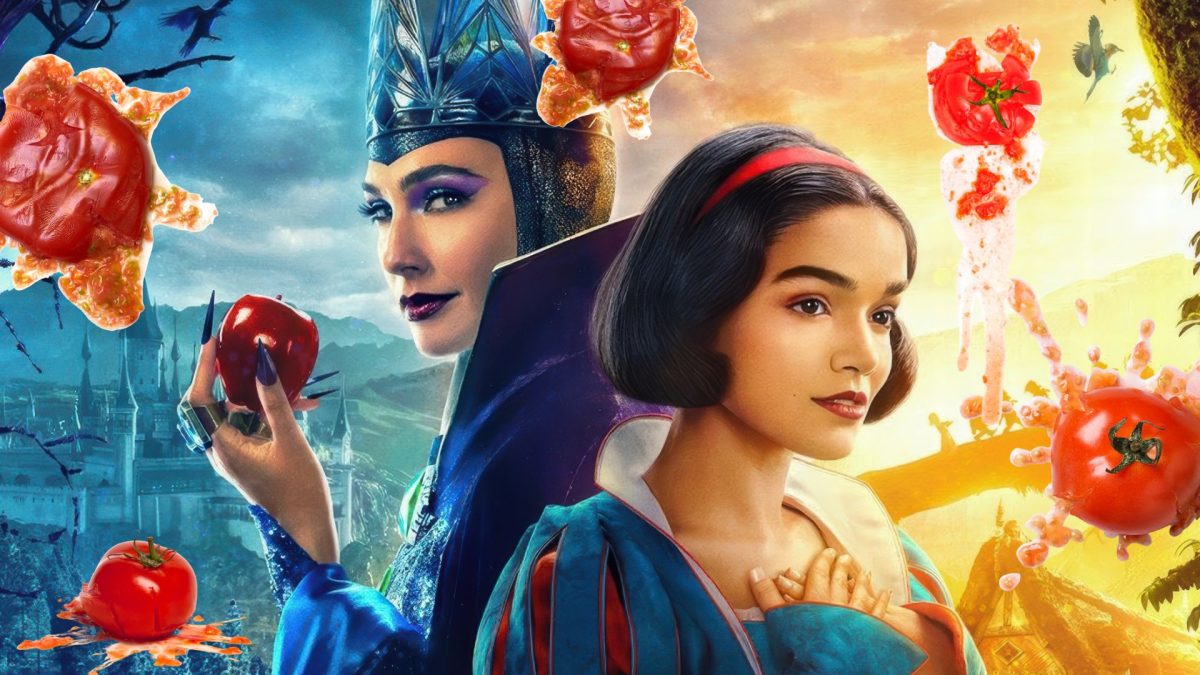The Disney live-action “Snow White” movie was released on March 21, 2025. It is a reimagined musical of the 1937 animated classic, costing more than $250 million to produce. In its opening weekend, the movie grossed only $87.3 million globally, falling short of expectations that it would break $100 million in its first weekend. As of April 22, the movie has grossed over $190 million, still falling short of breaking even. With critics on Rotten Tomatoes giving the movie a score of 40%, it’s clear that “Snow White” is not meeting expectations.
While many factors contribute to a film’s performance, it’s hard to ignore the political firestorm surrounding this movie since day one. “Snow White” has been mired in controversy, from casting decisions to comments made by the film’s stars. Some critics faulted the casting of Rachel Zegler, a Latina actress, as Snow White, an explicitly white character in the original story. Others took issue with Zegler’s public criticism of the original film, and further tensions arose when the film’s lead actors voiced differing views on the Israel-Palestine conflict. The movie seemed to fade into the background as political conversations dominated headlines.
This isn’t an isolated case. Modern films are increasingly being shaped, or derailed, by the political beliefs of their creators or the statements made by their stars. And reactions from audiences are clear: they’re tired. People don’t go to the movies to get lectured or dragged into debates. They go for escapism, storytelling and emotion, not for polarization. Political controversy hurts a film’s commercial success because it pulls focus away from the art and toward the argument. In an age where social media magnifies every soundbite, a single comment can spiral into a public relations disaster. While it’s true that art often reflects the views of its creators, there’s a fine line between telling a story that resonates with current times and delivering a product that feels more like a political pamphlet than a film.
Some argue that all art is political. In a way, that’s true, as no story exists in a vacuum, but there’s a difference between subtly embedding themes into a narrative and overtly using a film as a platform for personal ideology. The former invites thought. The latter demands agreement. Many will simply walk away when audiences sense they’re being preached to. In the case of “Snow White,” it wasn’t just the political messages within the film but the perception that Disney was reworking a beloved classic to fit a modern agenda. Changing plot points, casting choices or dialogue to better suit contemporary values isn’t bad, but when it’s done in a way that feels forced or pandering, it alienates fans of the original and new viewers.
Studios need to ask themselves: who is the movie really for? Are they trying to spark conversation, or just sell tickets? Because if it’s the latter, alienating half your audience isn’t a good strategy. It’s also important to recognize that many of these controversies don’t start with the film’s content, but with the public personas of the actors involved. Social media has blurred the line between performer and performance, and when actors make political statements, it inevitably impacts the way people view their work. While everyone has a right to free speech, the reality is that high-profile opinions can create backlash, and backlash affects box office numbers.
That said, it’s understandable that artists bring their worldview into their work. It’s impossible to separate the creator from the creation fully. And often, the most powerful films are the ones that reflect the complexities of real life. But there’s a difference between offering a perspective and pushing a message. Movies can be thought-provoking without being divisive.
Audiences are not asking for silence on social issues, but for balance. They want well-told stories that entertain and move them, not narratives that feel like they were crafted to tick boxes or make statements. When filmmakers focus on the story first, rather than the politics, the message (if there is one) tends to resonate more naturally.
In today’s climate, true neutrality might be impossible. Every decision can be seen as political by someone. However, studios and artists should remember that storytelling is a bridge, not a battleground. If movies are meant to bring people together in a shared experience, they should tread carefully when introducing divisive topics, especially if the goal is commercial success.
The numbers speak for themselves. When politics overshadows plot, it doesn’t just start arguments — it empties theaters.
Patience Edosa, FCRH ’28, is an English major from New York, New York.









































































































































































































